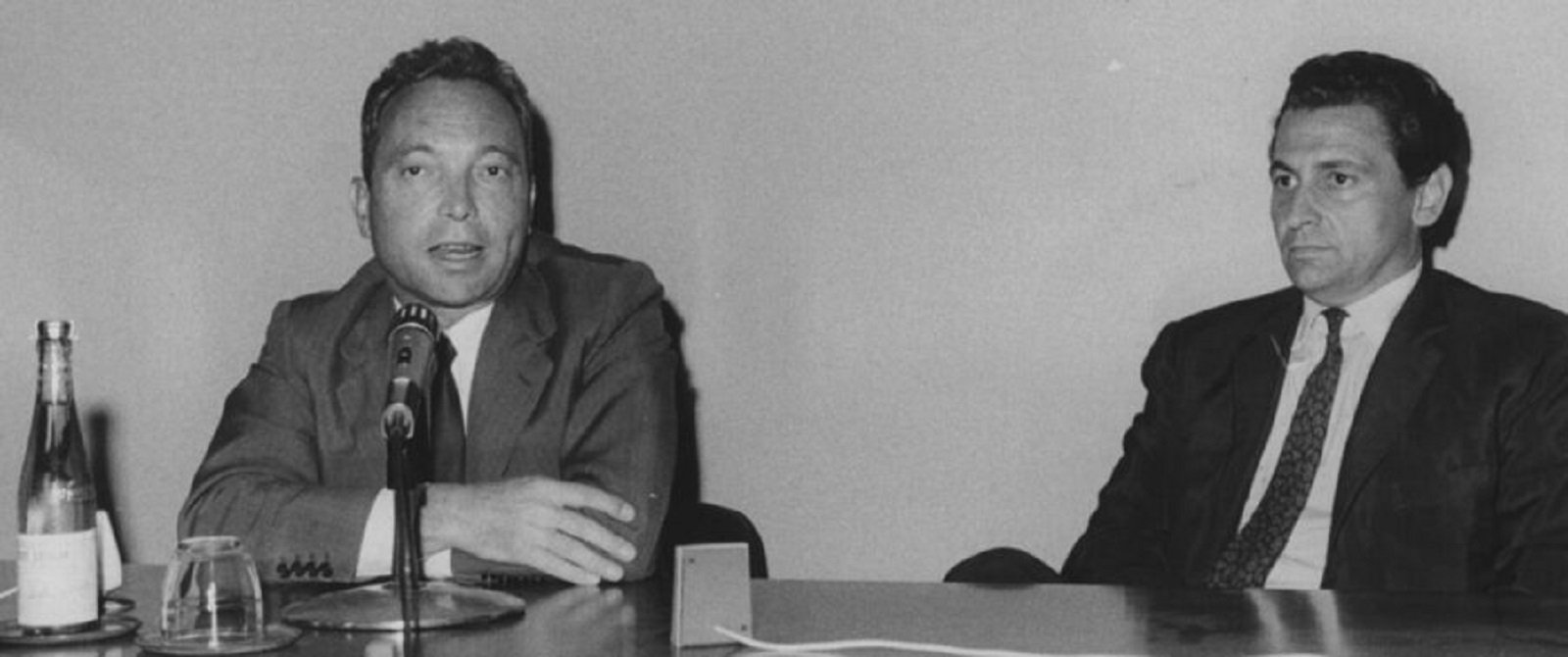In 1965, a Catalan entrepreneur established a network for the supply of natural gas from Algeria. It was a business initiative which, indirectly, has made it possible for the Spanish state to reach 2022 without being heavily dependent on Russian gas - the contrary of the situation in countries such as Germany and Belgium - even if the story also reveals how Spain has its own geopolitical fragilities. It was Pere Duran i Farell, born in 1921 in the Catalan town of Caldes de Montbui, who will go down in history as the person who introduced natural gas into Spain. But his entrepreneurial activity was very intense, and he acted on behalf of the Catalan industrial interests of two banks, first, Banco Urquijo, and then Banco Hispano Americano, which came to control the first in 1944. His big step into the world of energy came in the sixties.
The conversion of Catalana de Gas
In 1961 Duran was commissioned to convert another old company, Catalana de Gas i Electricitat, SA, from its dominant activity of electricity generation into the gas supply market. It was then that he came into contact with natural gas, an energy source known in Europe but unknown to the Franco regime, since the Spanish dictatorship's National Industrial Institute had opted for butane gas. Pere Duran established cordial relations with Algerian and Libyan leaders, who controlled the North African gas fields, and in 1965, when Duran was chairman of Catalana de Gas, they signed supply contracts that led to the creation of Gas Natural SA, with the participation of Catalana de Gas and its shareholders. In 1970, Franco inaugurated the Barcelona regasification plant for Libyan gas, which was transported in special tankers, and, once returned to gaseous form, was distributed by Catalana de Gas. In 1975, Spanish energy policy recognized the importance of this energy source. Duran i Farell's speech (in Spanish) is still on the website of successor company Naturgy.
As Francesc Cabana states in his book on the Catalan bourgeoisie (La burgesia catalana. Una aproximació històrica), in 1985 and under a Socialist government, "Repsol, a public company that sought to create a large natural gas distribution company, reached an agreement with Pere Duran, president of Catalana de Gas. This company merged with Repsol Butano, which controlled almost all the natural gas distribution companies in the rest of Spain, and the result of the merger was a second company called Gas Natural SA, chaired by Pere Duran and with a CEO appointed by Repsol. In 1997, Duran resigned from the presidency of Gas Natural".
During his career he maintained a cordial relationship with a range of political figures, from Francisco Franco to Catalan presidents Josep Tarradellas and Jordi Pujol, to Spain's Socialist prime minister Felipe González. In fact, the current Catalan economy minister, Jaume Giró, was head of staff for Pere Duran Farell at Gas Natural, from September 1989 until Duran Farell left the leadership of the board in 1997, accompanying Pere Duran on many of his trips and meetings with political leaders of Spain, Algeria, Libya and Morocco. The minister Giró has explained that that period was "the most rewarding and decisive for my future career, due to everything I learned from the exceptional personality, as an entrepreneur and as a humanist, of Pere Duran".
The Duran Farell pipeline - and its closure
Thus, today's gas imports from North Africa were spearheaded by this Catalan businessman, and later evolved, with two pipelines entering via the Spanish state and others crossing the Mediterranean to Italian territory. Nevertheless, all energy dependence has its potential problems, and in October 2021, Algeria closed the MEG gas pipeline, transporting natural gas from the Hassi R’Mel fields in the southern part of the country via Morocco and then across the Straits of Gibraltar to Tarifa and on to Córdoba. The reason for the tap being switched off was the rupture of diplomatic relations between Morocco and Algeria, with the Algerian foreign minister blaming the decision last August on "hostile behaviour", including the provocation of forest fires. This gas pipeline, in fact, was opened 25 years ago, and has two names: MEG and PDFP - the latter acronym corresponds to the initials of the Catalan engineer. Economic ties between the two countries continue, though, and Spanish multinational Naturgy and Algeria's Sonatrach have reached an agreement to guarantee the northward flow of gas for at least the next decade. The second pipeline across the Mediterranean, directly from Algeria to Almeria in Spain, along with liquefied gas shipments, have enabled continued supply to the Iberian peninsula despite the dispute between Rabat and Algiers.
Sánchez strengthens relations with Algeria
Indeed, the Spanish prime minister, Pedro Sánchez, moved to bolster up relations with Algeria this past Sunday. Sánchez made a call to Algerian president Abdelmadjid Tebboune to "express his gratitude to him as a reliable partner in the energy field" and to express his desire to "strengthen cooperation", that is, to be able to buy more gas from him if necessary, as the presidency of the Republic of Algeria revealed on Twitter. The Spanish government did not report this call.

